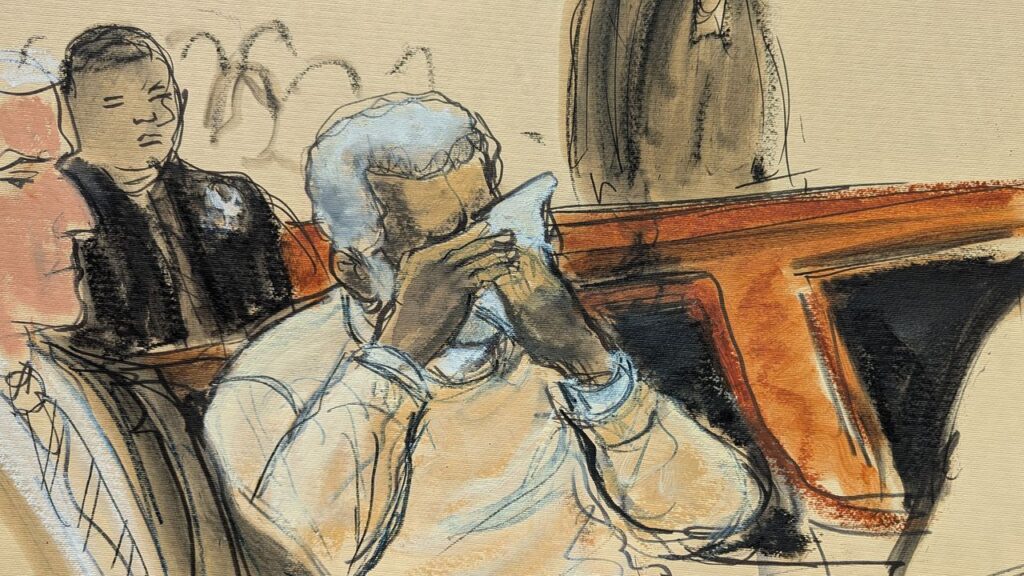Deonte Nash, a former stylist for Combs writing in the government’s sentencing submission, said, “Many of us were abused precisely because Mr. Combs wanted us to hold his secrets to maintain his “reputation.””
“Judge..That’s a good man,” Brownlee wrote.
“Judge, this is not a good man,” Nash said.
On Friday, Combs, hair graying, entered the courtroom in a white sweater after Subramanian ruled this week that, as during his trial, he would be permitted to receive non-prison clothing at the Metropolitan Detention Center. He offered a wave to his family in the gallery and hugged his attorneys.
After his lawyers and prosecutors spoke, Combs addressed the judge—his lengthiest public comments on the legal saga that has enveloped him since Ventura first sued. (He declined to testify at trial.)
“I want to thank you for giving me the chance to finally speak up for myself,” Combs said.
He framed his remarks in part as an apology to Ventura and Jane Doe. “I brought you into my mess,” Combs said, describing his behavior as “disgusting, shameful, and sick.”
“I’m not this larger-than-life person,” Combs said he had come to realize. “I’m just a human being.”
His statement clocked in a little over ten minutes, and he acknowledged the extensive furor surrounding him. “No matter what anybody says,” Combs said, “I know that I’m truly sorry for it all.”
In fighting the charges he faced, Combs has also launched an offensive around the gossip ecosystem that has sprung up around him. This week, his publicist sent out email blasts with each update in his sentencing submission, and his attorneys have taken to filing defamation suits against some of the parties registering the most sensational theories of his wrongdoing.
Ventura was not in the courtroom on Friday, but her contribution to the prosecution’s sentencing submission gave some sense of how she navigated the spectacle surrounding the case. “I have been in a cycle of thought and then over thought writing this letter to you,” she wrote to the judge. “If there is one thing I have learned from this experience, it is that victims and survivors will never be safe. Although I can hope for justice and accountability, I have come to not trust anything. I hope that your decision considers the truths at hand that the jury failed to see.”
Privacy and quiet had become her priorities, Ventura wrote, and she had moved her family out of the New York area, fearing retribution from Combs and his associates. “He will always be the same cruel, power-hungry, manipulative man that he is,” she said. “When I came out with my allegations in my civil case, he flatly denied them again and again. It was only after actual video footage corroborated the exact words in my civil complaint that he issued an insincere apology on the internet.”

